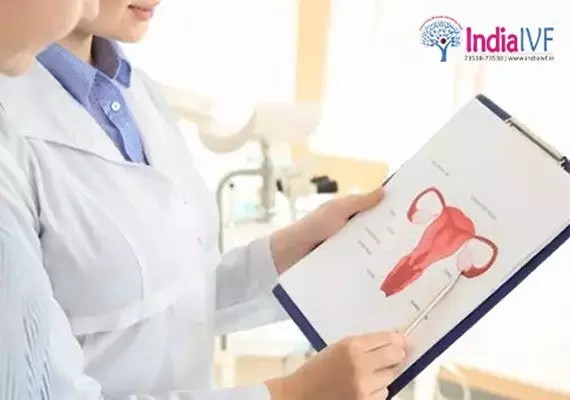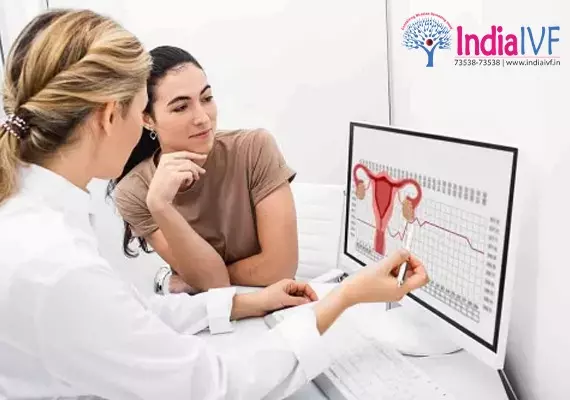Your cart is currently empty!


Ovulation Induction Treatment (OIT) is a fertility treatment in India that works to induce ovulation and improve the chances of successful conception. This article provides an overview of Best Ovulation Induction Treatment in India, including how it works, its success rate, and potential side effects.
Ovulation induction treatment is a fertility therapy used to stimulate ovulation (the release of an egg from the ovary) in women who are having difficulty getting pregnant due to ovulation disorders. This treatment involves the use of medications, such as clomiphene citrate or gonadotropins, to stimulate ovulation and increase the chances of pregnancy. The goal of ovulation induction treatment is to help a woman ovulate and become pregnant.

Deriving blood samples for measuring the hormone levels at particular stages of the cycle
There are several treatment options to treat ovulation disorders.
The medications required for ovulation induction causes multiple follicle developments, which makes it susceptible to the risk of multiple pregnancies. This is why you need to undergo ultrasounds at a regular time to closely monitor the number and rate of growth of these follicles. If there is the development of more than one follicle, your fertility specialist will consider the risks of multifollicular ovulation and discuss it with you.
The Trigger: After the development of follicle, we may use another injection of synthetic human chorionic gonadotropin (hCG) hormone to trigger the release of the egg from the follicle. The fertilization window is for 36 hours from the time of trigger

Ovulation induction treatment is typically recommended for women who have difficulty ovulating, such as those with Low egg reserve, polycystic ovary syndrome (PCOS) or other hormonal imbalances. It may also be used for women who have been trying to conceive for a long period of time without success. Ovulation induction treatment is usually only recommended after other fertility treatments, such as lifestyle changes or medications, have been tried and found to be ineffective. Your doctor will be able to advise you on whether ovulation induction treatment is appropriate for you based on your individual medical history and fertility status.
There are several medications that can be used for ovulation induction, including clomiphene citrate, gonadotropins, and letrozole. These medications work by stimulating the ovaries to produce multiple eggs, which can increase the chances of pregnancy. They are typically prescribed by a fertility specialist and are used in conjunction with other fertility treatments, such as in vitro fertilisation (IVF). It’s important to note that these medications should only be used under the close supervision of a healthcare provider.
Ovulation induction is a medical treatment used to stimulate ovulation (the release of an egg from the ovary) in women who are having difficulty becoming pregnant. Risks associated with ovulation induction include:
It’s important to have a discussion with your healthcare provider about the risks and benefits of ovulation induction before starting any treatment.
The success rates of ovulation induction vary depending on the specific method used and the underlying cause of infertility. For example, ovulation induction with clomiphene citrate (CC), a common medication used to treat infertility, has a success rate of 10-20% per cycle, with a cumulative pregnancy rate of 30-40% after 3-6 cycles. Ovulation induction with gonadotropins, another medication used to treat infertility, has a success rate of 20-40% per cycle, with a cumulative pregnancy rate of 60-80% after 3-6 cycles. In vitro fertilization (IVF), a more invasive and costly method of ovulation induction, has a success rate of 60-70% per cycle, depending on the woman’s age and other factors. It’s important to note that these are approximate numbers and each individual case is different and can have different results. It’s also important to consult with a fertility specialist to understand the best course of treatment for your individual case and expectations of success.
The cost of ovulation induction treatment in India varies depending on the specific treatment plan and the location of the clinic or hospital. However, it is important to consult with a fertility specialist to get an accurate estimate for the treatment.
It is important to research and compare different IVF clinics before making a decision. It is also important to consult with a doctor and seek advice about the best options for your individual case.
The signs that you are not ovulating include irregular or absent menstrual periods, difficulty getting pregnant, and changes in cervical mucus. Other symptoms can include acne, weight gain or loss, excessive hair growth or hair loss, and changes in mood or energy levels. It’s important to consult with a healthcare provider if you suspect you are not ovulating as they will be able to conduct an examination and run tests to confirm the diagnosis and discuss treatment options.
The timing of ovulation after a trigger shot (hCG injection) can vary, but typically ovulation occurs within 36-48 hours after the injection. However, it’s important to note that every woman’s menstrual cycle is different, so the timing of ovulation may vary from person to person. Your healthcare provider will be able to give you more specific information about when you can expect to ovulate after a trigger shot.
HMG (human menopausal gonadotropin) treatment is a fertility therapy that is used to stimulate ovulation in women who have difficulty getting pregnant. The treatment involves injecting HMG into the woman’s body, which causes the ovaries to produce more follicles and increase the chances of ovulation. HMG treatment is usually used in conjunction with other fertility treatments such as in vitro fertilization (IVF) or intrauterine insemination (IUI). It’s important to note that HMG treatment should be done under the supervision of a fertility specialist and regular monitoring is needed to ensure that the treatment is working and to avoid any potential complications.
Ovulation induction is a treatment used to help women who have difficulty ovulating or who have irregular menstrual cycles. The treatment involves the use of medication to stimulate ovulation, which can increase the chances of pregnancy. It can be used alone or in combination with other fertility treatments, such as in vitro fertilization (IVF). If you have been trying to conceive for some time and have not been successful, it may be helpful to speak with a fertility specialist to determine if ovulation induction is a viable option for you.
There are several ways to stimulate ovulation, including:
Medications: Your doctor may prescribe medications such as clomiphene citrate or gonadotropins to stimulate ovulation.
Diet and lifestyle changes: Eating a healthy diet, maintaining a healthy weight, and reducing stress can improve your chances of ovulating.
Herbal supplements: Some herbs, such as vitex or maca root, may help to regulate hormones and stimulate ovulation.
Acupuncture: Acupuncture may help to regulate hormones and improve ovulation.
Tracking Ovulation: Keeping track of your menstrual cycle and using ovulation predictor kits, basal body temperature and cervical mucus to identify your fertile window can greatly improve your chances of ovulation.
It’s important to note that, before trying any of these methods, you should consult with your doctor to determine the best course of action for you. Additionally, some methods may not be suitable for you depending on your health condition.
At India IVF Clinics we provide the most comprehensive range of services to cover all the requirements at a Fertility clinic including in-house lab, consultations & treatments.